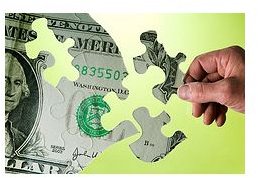Asset Purchase vs. Stock Purchase: Best Way to Buy an Existing Business
Purchasing Assets Versus Stocks
Buying an existing business can be puzzling if you’re doing it for the first time. Once you find a business you want to purchase, which is the best way to buy it? What’s the difference between an asset purchase vs a stock purchase? How do you cash flow forecast?
Structuring a business deal can be complicated if you don’t know the difference. To protect yourself, it is worth the money to enlist the help of a corporation attorney so you aren’t responsible for liabilities you don’t want. There are differences between an asset purchase and a stock purchase. Be informed before you buy.
A stock purchase basically means you are investing and buying everything the seller owns including stocks, assets, and liabilities. With a stock purchase you are also buying the entity itself meaning you own the name of the business or entity. This is attractive to the seller because they walk away with no leftover responsibilities for the business.
On the other hand, with an asset purchase, the seller retains the stock and you may only be responsible for liabilities outlined in the sales or purchase agreement. With an asset purchase, you are usually required to form your own business structure, corporation, or limited liability company. This type of purchase is more attractive to a buyer who can pick and choose which liabilities they want to assume and which assets they want to purchase.
Tax Benefits
When buying an existing business, whether you enter into a stock purchase or an asset purchase, there are tax benefits to keep in mind. With a stock purchase, the seller walks away and you essentially step into their shoes and the business keeps running as before. The assets and liabilities of the company are not adjusted on your accounting books; however, they do continue to depreciate. A stock purchase is beneficial to the seller as they realize a gain or loss at tax time based upon the sales price and the initial stock worth of the business.
In an asset purchase, the buyer reaps the rewards at tax time. Any gain or loss once you purchase the business with an asset purchase will be yours to claim at tax time and is based on the difference between the price you paid for the existing business and the value of the business through calculating the assets and liabilities you assumed when you bought it. In addition, with an asset purchase, as the new owner, you can adjust your assets and liabilities based on fair market value at the time of the sale for accounting purposes.
Which is Best?
It is always recommended to consult not only a corporate lawyer but your accountant before you buy an existing business. What may be attractive to the seller may not be beneficial to you as the buyer. In an instance where a seller is forced to sell because of poor business management, a stock purchase may not be the best answer because you may be assuming many liabilities. If a business is doing well and the seller just wants to sell, a stock purchase may be worth it due to lower liabilities.
If you want to create your own entity and be able to adjust assets and liabilities, then an asset purchase may be the way to go. Whichever route you choose to buy an existing business, take the time to perform due diligence on the business before you buy. Have your accountant make an external and objective view of the condition of the business. Finally, to get the most during the due diligence period, offer to sign a confidentiality agreement so you will have access to all of the business records. This way you will have ample time to examine the records and make a smart decision before you buy an existing business.
When considering buying an existing business, consider what is best, an asset purchase vs a stock purchase to help you make an informed decision.
